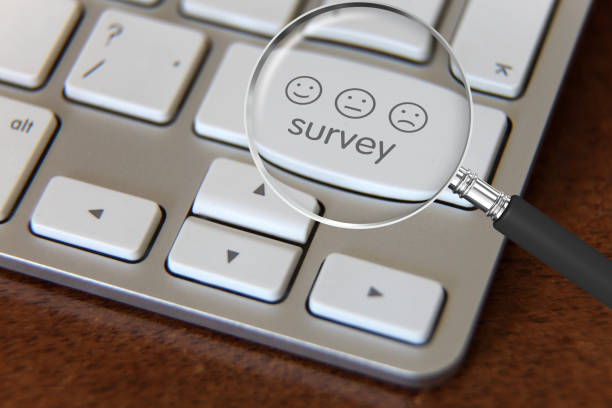Explore the effectiveness of surveys with 10 valuable insights and tips

Introduction to the Survey’s Magnitude
We have all experienced a situation like this: A message appearing on a website asking our feedback, or maybe an email containing a link that encourages us to share our thoughts on a purchase. These are all forms of surveys, a tool with a legacy that stretches back centuries. But what makes surveys so essential in today’s fast-paced world? How can you harness the power of surveys to drive decisions in both personal and professional spheres? Read on to learn more.
The Origins of Surveys
Ancient Civilizations and their Questionnaires
The survey, in its essence, isn’t a modern-day invention. Early societies like the Egyptians and Romans had their own ways of collecting information, even though it must have not been as advanced.
These early methods were primarily used for tax collection, census, and other governmental purposes.
Modern Day Evolution
With the dawn of technology, especially the internet, surveys have undergone a revolutionary transformation. They’ve evolved from mere census tools to sophisticated instruments used for market research, product feedback, and even political polling.
Types of Surveys
Online vs. Offline
The digital age has shifted the majority of surveys online, thanks to their convenience and reach. However, traditional paper surveys still hold relevance, especially in areas with limited internet connectivity or among certain demographics that prefer the tactile experience.
Open-ended vs. Closed-ended
While open-ended questions provide deeper insights and personal opinions, closed-ended ones offer quantifiable data that’s easier to analyse. The choice between the two often depends on the survey’s goal.
Crafting the Perfect Survey
Question Types and Their Impact
Knowing what kind of question to ask, and choosing the right type of questions is very important. Multiple-choice, ranking, or Likert scales? Your choice can influence the accuracy of the data collected and its subsequent interpretation.
The Importance of Neutral Wording
Avoiding leading questions is crucial. Neutral wording ensures unbiased responses, leading to more genuine feedback.
The Power of Audience Engagement
Feedback and its Golden Value
In today’s world, customer feedback is gold. Getting audience involved with surveys can give you valuable information about what they like, what worries them and what they expect.
Trends and Changing Audience Preferences
Staying updated with the dynamic world of consumer preferences can prove to be quite difficult. Regular surveys can spotlight emerging trends, ensuring businesses remain ahead of the curve.
Analysing Survey Results
Tools and Techniques
With various software available, analysing survey results has never been easier. Tools such as SurveyMonkey or Google Forms provide comprehensive data analysis options.
Mistakes to Avoid in Interpretation
Avoiding confirmation bias and ensuring accurate sample representation are vital to correctly interpret results and make informed decisions.
Survey Ethics and Confidentiality
Ensuring Participant Anonymity
A paramount concern for many survey takers is their anonymity. Ensuring that personal details aren’t linked to responses can increase participation rates.
Transparency in Data Usage
Its necessary to clearly explain how the information will be used and make sure it’s not abused in order to uphold trust.
Benefits of Surveys
Informed Decision-making
Surveys provide information based on people’s experiences and make sure that decisions are based on actual feedback instead of assumptions.
Enhancing Customer Relations
Understanding customer pain points and acting upon feedback can significantly enhance customer relationships, leading to loyalty and trust.
Challenges and Limitations
Avoiding Bias
From the design stage to data interpretation, avoiding bias is pivotal to obtain genuine, actionable insights.
The Danger of Misinterpretation
Using unclear questions or misunderstanding data can result in wrong conclusions. This stresses the significance of having knowledgeable people involved in surveys.
Innovations in Survey Techniques
Artificial Intelligence and Surveys
AI can optimise question sequencing, analyse open-ended responses, and even predict trends based on survey results.
Virtual Reality-Based Feedback
Imagine walking through a virtual store and providing feedback! VR offers a unique, immersive survey experience, especially for product testing.
Surveys in Different Industries
Healthcare: Patients’ Feedback
Patient feedback is revolutionising healthcare, from improving bedside manners to hospital facilities.
Retail: Understanding the Consumer
Surveys help retailers understand what consumers think, which assists in creating better products, arranging store layouts, and planning marketing approaches.
Future of Surveys
Predictions and Possibilities
As technology continues to evolve, so will surveys. We can anticipate more interactive, real-time feedback methods in the near future.

FAQs
- Why are surveys important?
Surveys provide genuine feedback and data-driven insights, helping in informed decision-making across sectors, from business to politics.
- How do I create an effective survey?
An effective survey is concise, has clearly worded questions, avoids bias, and ensures respondent confidentiality.
- Can I trust online survey tools?
Most reputable online survey tools maintain strict data confidentiality and are secure. Always check their privacy policy before proceeding.
- What is survey bias and how can it be avoided?
Survey bias arises when survey design or interpretation influences results unduly. It can be avoided by using neutral wording, ensuring diverse respondent representation, and analysing results objectively.
- Do surveys always provide accurate results?
While surveys provide insights, their accuracy depends on the design, sample size, and analysis. It’s crucial to ensure these elements are optimised for genuine feedback.
- How often should I conduct surveys?
The frequency depends on the survey’s objective. For instance, customer feedback can be sought after each interaction, while market research might be conducted annually.
Conclusion
The survey, a seemingly simple tool, has profound implications when used effectively. From businesses to individual researchers, understanding its nuances can lead to transformative insights. So, the next time a survey pops up, remember the immense power it holds and the difference your feedback can make.
External Links/ Sources:
